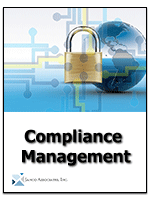Government Control of Internet
Cutting off of Internet service stuck a blow to outsourcing and Internet portability
Government Control of Internet. With civil disturbances and the cutting off of Internet services in the Middle East many business continuity managers are starting to re-think their assumptions in the outsourcing and disaster planning processes. For example, HP was seriously impacted by Egyptian government's decision in that they delivered a broad portfolio of information technology outsourcing services to clients in the manufacturing, financial services, communications, transportation, and consumer and retail industries and to governments around the world. In 2009, Egypt cracked the list of the 30 top countries for outsourcing.
 The cutting off of Internet services by the government of Egypt struck a blow to the outsourcing industry. That added a new level of risk that enterprises must access and plan for when they outsource outside of major developed countries.
The cutting off of Internet services by the government of Egypt struck a blow to the outsourcing industry. That added a new level of risk that enterprises must access and plan for when they outsource outside of major developed countries.
From a broader perspective Australia in recent years set up a "firewall" around its Internet, with the intention of blacklisting child pornography Web sites. But a list of the blocked sites showed that the Australian government was censoring more than porn: The blacklist contained religious and political Web sites.
In the US, the Protecting Cyberspace as a National Asset Act, which is being pushed hard by Senator Joe Lieberman, would hand absolute power to the federal government to close down networks, and block incoming Internet traffic under a declared national emergency.
Section 249: If the President determines there is a credible threat to exploit cyber vulnerabilities of the covered critical infrastructure, the President may declare a national cyber emergency, with notification to Congress and owners and operators of affected covered critical infrastructure. The notification must include the nature of the threat, the reason existing security measures are deficient, and the proposed emergency measures needed to address the threat. If the President exercises this authority, the Director of the NCCC will issue emergency measures necessary to preserve the reliable operation of covered critical infrastructure. Any emergency measures issued under this section will expire after 30 days unless the Director of the NCCC or the President affirms in writing that the threat still exists or the measures are still needed. . .
In addition, the Combating Online Infringement and Counterfeits Act (COICA) was introduced in Congress by Sen. Patrick Leahy (D-VT). It would have granted the federal government the power to block access to any Web domain that is found to host "copyrighted" material without permission. Opponents note that the powers given the government under the bill are very broad. It could
theoretically block access to all of YouTube, whether or not particular material being accessed infringes copyright.
Free speech advocates argue that Internet censorship laws are inevitably used for purposes other than the ones claimed by lawmakers.
Existing Legislation
Numerous laws and regulatory mandates focus on corporate governance and accountability around sensitive information (specifically financial, non-public information and protected health care information). This has significantly impacted the underlying IT systems that support the applications and repositories holding this sensitive information. Organizations are continuously looking for help in preventing fraud and protecting sensitive information. The fact that key corporate executives carry personal liability in the event of non-compliance virtually ensures compliance to be a key initiative in any large organizations. Additionally, there are other internal cost-containment requirements that can be effectively met by defining and implementing a sound auditing and compliance methodology. Most corporations agree that compliance leads to better corporate governance and management.
Federal and state government regulations (see state compliance requirements) can be a big problem for today's organizations. There are more than 100 such regulations in the U.S. alone, and that number continues to grow. These are in addition to industry-specific mandates. They are all designed to safeguard the confidentiality, integrity, and availability of electronic data from information security breaches. So, what are the consequences if your organization fails to comply? Heavy fines and legal action. In short, it's serious.
Exposure for non-Compliance
Regulation |
Penalty |
Fine |
GLBA |
10 Years Prison |
$1,000,000 |
HIPAA |
10 Years Prison |
$100 per occurrence maximum of $25,000 per year |
SOX |
10 Years Prison |
$15,000,000 |
Sec Rule 17a-4 |
Suspension |
$1,000,000 |
Compliance Management Toolkit Versions
Janco offers a full range of tools to help enterprises of all sizes to address these issues. The Compliance Management kit provides the infrastructure tools necessary address these mandated requirements.
In addition to the Compliance Management White Paper we provided the The Compliance Management tool kit in three (3) versions: Silver, Gold, and Platinum.
Order Compliance Management Kit Download Selected Pages Compliance Kit
















